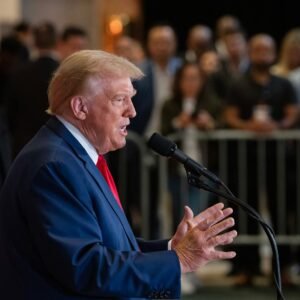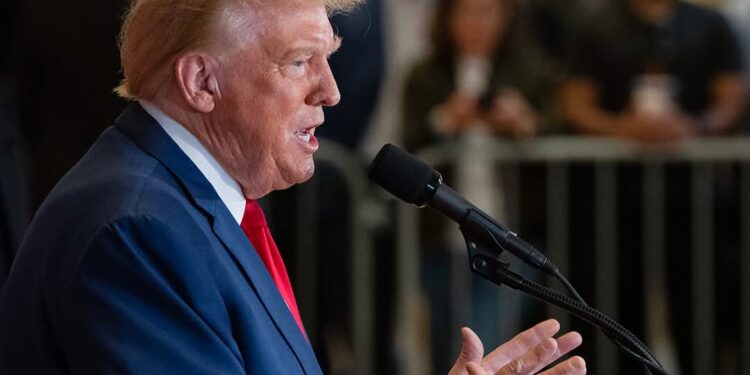
By The Merit Newspaper International Correspondent
Former U.S. President Donald Trump has announced plans to cut all U.S. funding to South Africa in response to the country’s land expropriation law, a move that has sparked international debate and economic concerns. Trump described the law as a “massive human rights violation” against white South Africans and called for an investigation into the policy.
The law in question allows for the seizure of land without compensation as part of efforts to redress historical injustices from the apartheid era. South African President Cyril Ramaphosa has defended the legislation, insisting that it is constitutional and aimed at correcting past inequities in land ownership.
Trump’s decision has had immediate economic implications, with the South African rand experiencing a decline amid uncertainties about the future of U.S.-South Africa relations. Observers warn that the withdrawal of U.S. financial assistance could impact various sectors, including development projects and trade agreements between the two nations.
Critics argue that the Trump administration’s stance lacks a nuanced understanding of South Africa’s land reform policies. Some analysts believe the decision is politically motivated, especially as Trump seeks to consolidate his base ahead of the U.S. elections.
The debate has also drawn reactions from influential figures, including billionaire entrepreneur Elon Musk, who accused the South African government of being anti-white. South African officials, however, have rejected such claims, emphasizing that the land reform policy is designed to foster economic equality rather than target any racial group.
As the situation unfolds, political and economic analysts are closely monitoring the impact of Trump’s decision on South Africa’s international relations and domestic stability.
For continued updates, follow The Merit Newspaper International Correspondent.
















